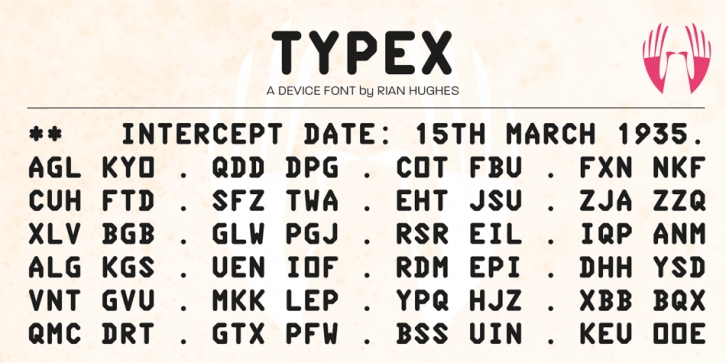

Based on the lettering used on Alan Turing’s famous code-breaking machine at Bletchley Park, the “Bombeâ€, and the subsequent British answer to the German Enigma machine, the Typex.
Research done at Bletchley Park on their restored and antique machines provided the inspiration. The unusual shapes for the capitals have all been retained - the square O, the monospaced characters and other eccentricities that make it unique. This reference material was then extended to the numerals (which did not exist in the original) and a full international character complement.
The initial design of the bombe was produced in 1939 at the UK Government Code and Cypher School (GC&CS) at Bletchley Park by Alan Turing, with an important refinement devised in 1940 by Gordon Welchman. It was based on a device that had been designed in 1938 in Poland at the Biuro Szyfrów (Cipher Bureau) by cryptologist Marian Rejewski, and known as the “cryptologic bomb” (Polish: bomba kryptologiczna).
The Bombe was used to break the German Enigma code on a daily basis, and was a vital part of the Allied war effort. The British “Typex” (alternatively, Type X or TypeX) machines were an adaptation of the commercial German Enigma with a number of enhancements that greatly increased its security. It was used from 1937 until the mid-1950s, when other more modern military encryption systems came into use.
Font Family: